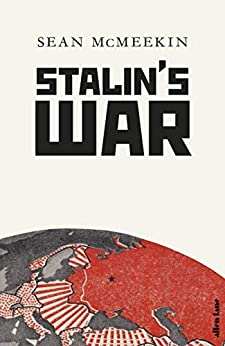Sean McMeekin is an interesting historian and has written some fascinating books encouraging the rest of us to take a new look at things like the Russian Revolution or the Communist International. This door-stopper of a book is similarly ambitious — urging us to rethink of the Second World War as one that had only one victor: Josef Stalin.
Of course there are points to be made in favour of that argument, but McMeekin’s book seems far more of a polemic than a history. He has several villains (Harry Hopkins, FDR’s aide comes to mind) and hardly any heroes. There is an enormous amount of information about how the US armed Stalin at the expense of everyone else (the Chinese nationalists were in the end left to fend for themselves). McMeekin’s account is full of statistics about how many Dodge trucks arrived in Vladivostok, or how much butter and eggs the US contributed to the Soviet war effort. FDR comes off as a Soviet dupe, and Churchill fares little better. And the Germans — remember them? They get hardly a mention.
The book ends with McMeekin questioning whether the war needed to happen at all. He suggests possible deals the US could have done with Japan to prevent conflict, and builds a case against the doctrine of “unconditional surrender” that the US and the USSR imposed on Nazi Germany. He thinks US support for the USSR following the German invasion in June 1941 was a mistake and it would have served Western interests to allow the two sides to fight it out. (Of course with his crediting US aid as the only thing that propped up the Soviet regime, he does seem to prefer an inevitable Nazi victory on the eastern front to what actually happened.)
Though he acknowledges the barbarism of the Nazi regime (how could he not?) the level of detail is as nothing compared to McMeekin’s accounts of the sufferings (and they were genuine) of the peoples who came under Soviet rule by 1945. Offhand comments in the very final pages of the book about the loss of civil liberties in the US place the author dangerously close to the isolationist right wing of 1939-41 in the US, as does his constant reminders of how very awful FDR was.
I wish I could have liked this book more, but it is, despite all the footnotes and all the research, a superficial and very biased account of the war and I cannot recommend it.
